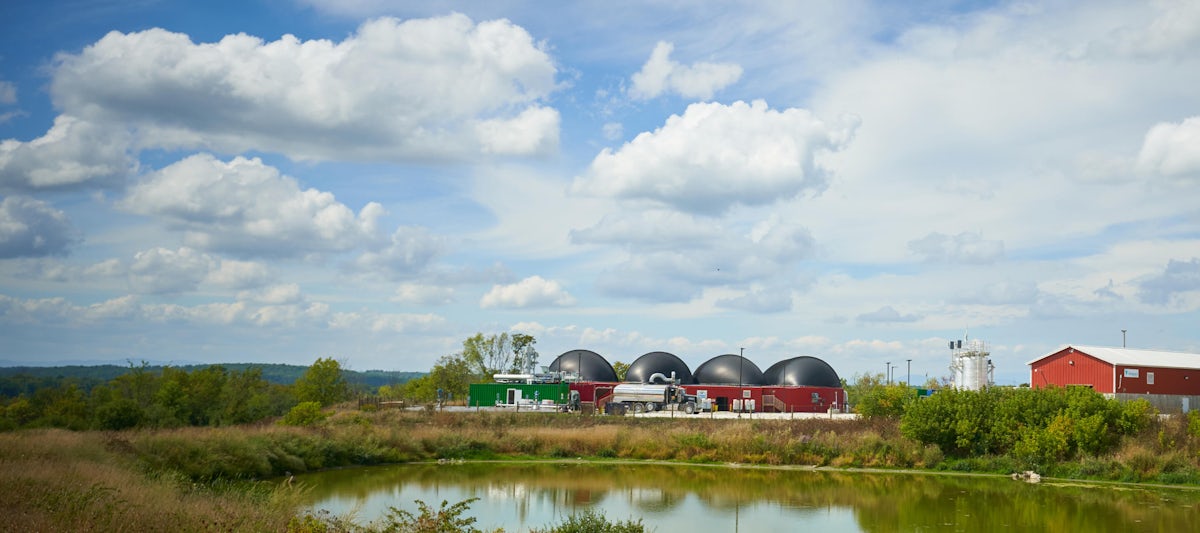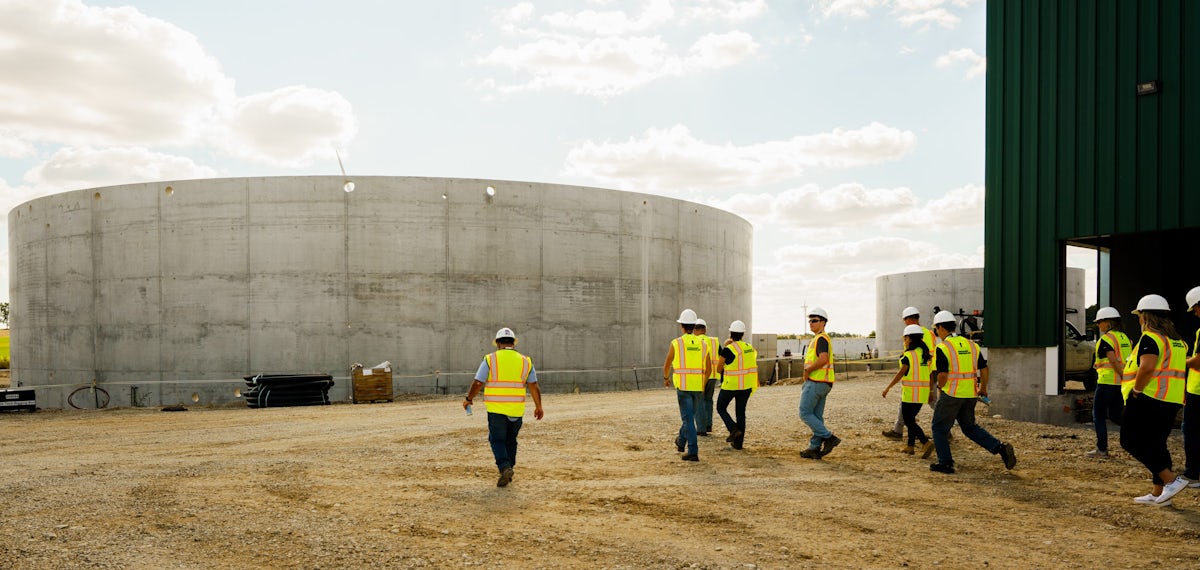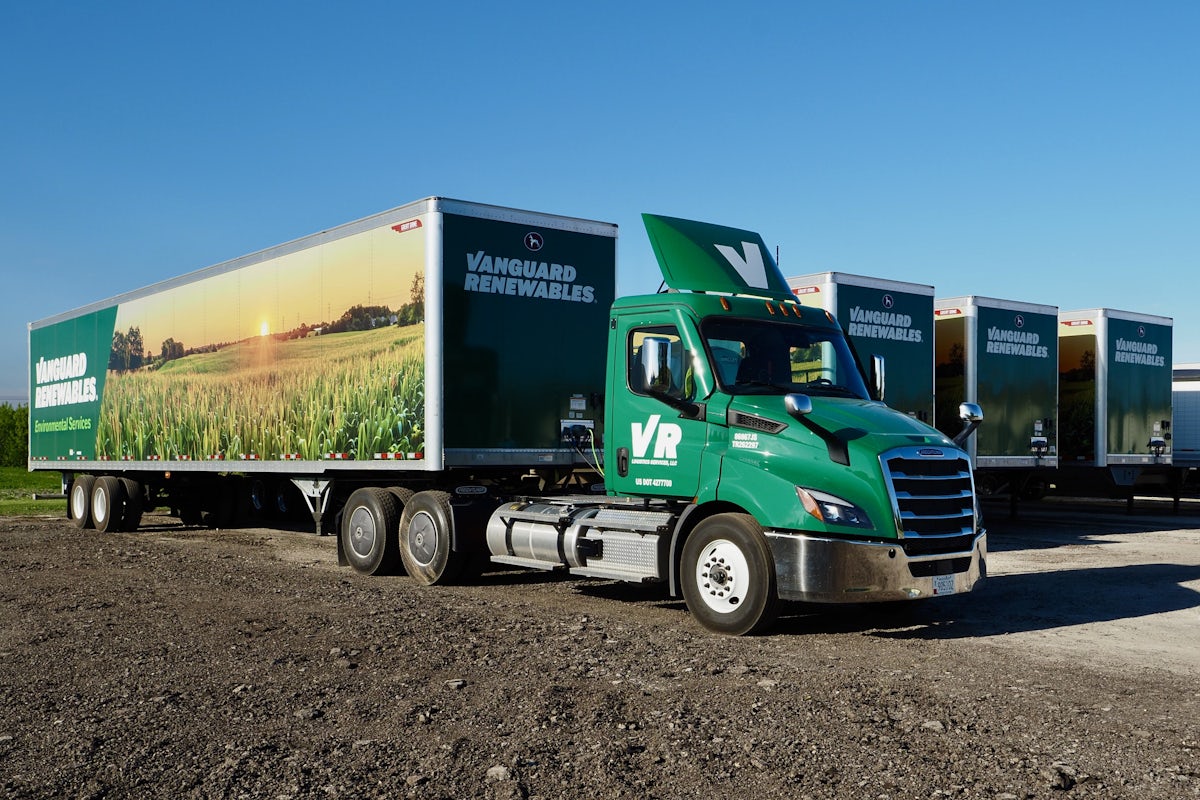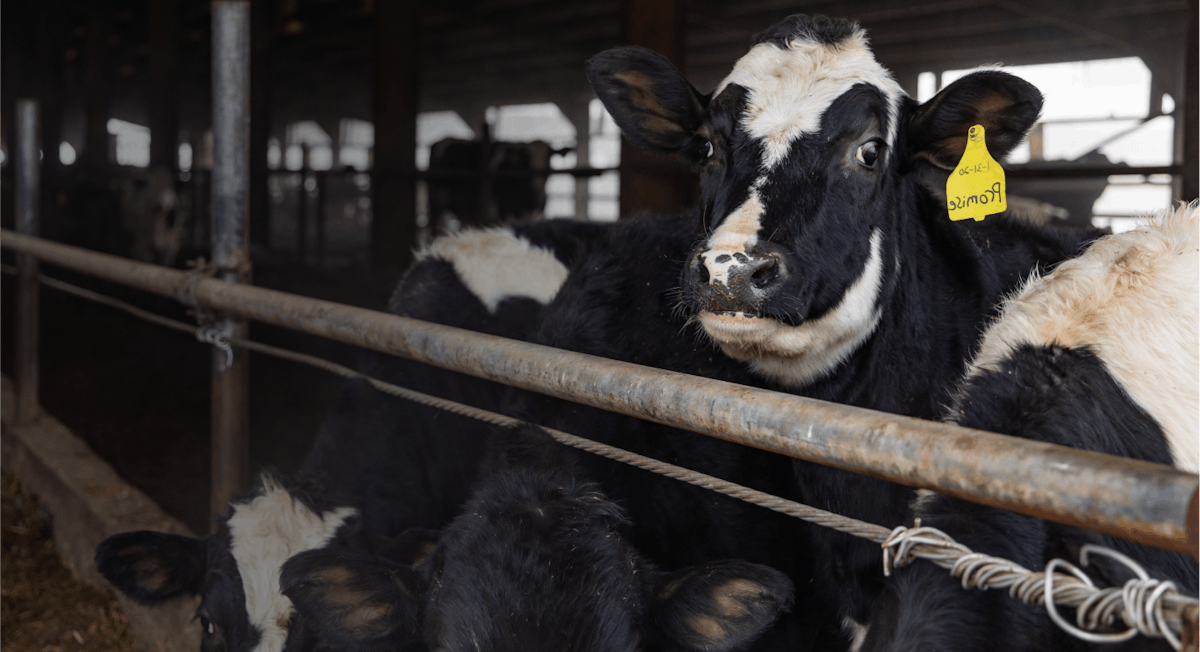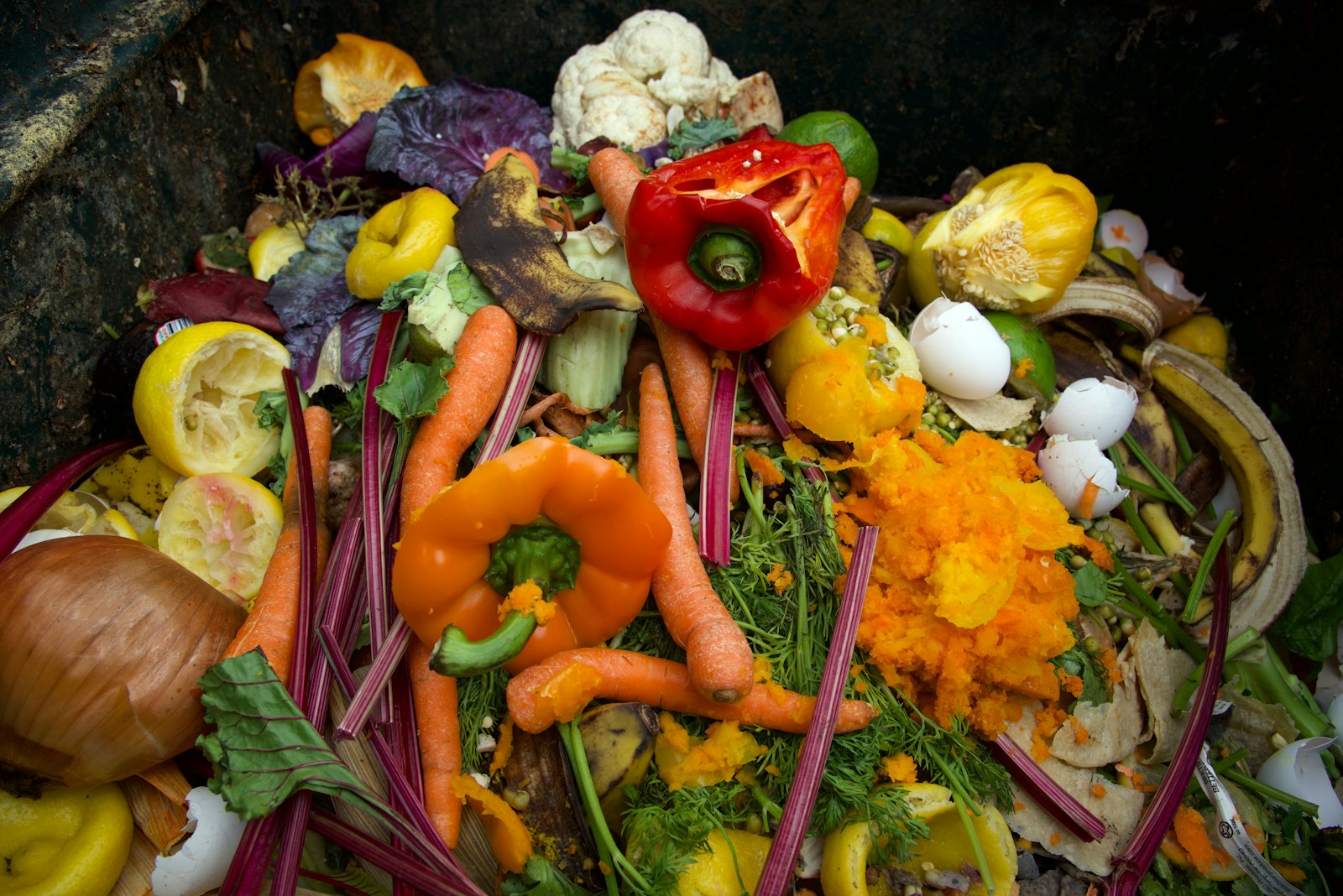
The importance of diverting organic materials....
The most common material sent to landfills is food. (EPA)
- Food waste is estimated to be between 30-40% of the food supply. (USDA)
Decomposition of food scraps in a landfill or burning food scraps in an incinerator generates methane and other harmful greenhouse gases.
- Wasted food causes 58% of methane emissions from municipal solid waste landfills. (EPA)
Diverting organics to an alternative site creates beneficial byproducts, encouraging a circular economy.
The food and beverage waste that is sent to Vanguard Renewables' depackaging facility and network of farm-based anaerobic digesters creates many benefits such as renewable energy and low-odor fertilizer, while helping to preserve family dairy farms for future generations.
Who must comply?
California
- State: Covered commercial food waste generators (Tier One and Tier Two) must donate edible food to recovery agencies and recycle the remaining. Learn more.
- City - San Francisco: All property owners and businesses are required to subscribe to apprpriate organic waste collection services and provide proper containers to residents for disposing of compostable materials. All individuals are required to separate and recycle household organic waste. Learn more.
Colorado
- City - Boulder: All property owners and businesses are required to subscribe to apprpriate organic waste collection services and provide proper containers to residents for disposing of compostable materials and are required to separate and recycle organic household waste. Learn more.
Connecticut
- State: Any commercial food wholesaler or distributor, industrial food manufacturer or processor, supermarket, resort, or conference center that produces at least 26 tons/year of source separated organic waste and is located within 20 miles of an authorized composting facility must separate its organic waste and ensure proper recycling. Learn more.
Florida
- City - Gainesville: Any commercial establishment that generates one cubic yard of food waste or more per week must separate food waste from the waste stream and collect food waste in containers that are separate from garbage. Learn more.
Hawaii
- City - Honolulu: Covered entities which include restaurants that occupy more than 5,000 square feet or serve an average of more than 400 meals/day, food courts, hotels with kitchens, markets that occupy more than 18,000 square feet, food manufacturers of over 5,000 square feet, and catering establishments and hospitals that serve more than 400 meals/day are required to recycle or donate all excess food. Learn more.
Illinois
- State: Owners or operators of permanent large event facilities with capacity for at least 3,500 people are required to offer food and organic waste composting when such sites are located in counties with composting facilities. These sites must offer separate containers for organic waste disposal, which must be clearly labeled and distributed throughout the event site.
Maine (Starting 1/1/2026)
- State: Any food waste producers that generate 2 or more tons of food waste a week and is located within 20 miles of an organics recycling facility is required to donate edible food before resorting to agricultural uses such as feeding animals or to recycling such as composting or anaerobic digestion. Learn more.
Maryland
- State: Any business that generates at least 1 ton per week of food residuals and is located within 30 miles of an organics recycling facility is required to separate and divert food residuals away from final disposal in landfills and incinerators. Learn more.
Massachusetts
- State: Any commercial entity that produces more than half a ton of organic waste in a given week must separate the organic waste and recycle it properly; disposal, incineration, or transfer for disposal at a solid waste disposal facility are banned. Learn more.
Minnesota
- County - Hennepin County: A business entity that produces at least one ton of trash per week or contract for at least eight cubic yards of trash collection per week must source separate back-of-house food scraps and either self-haul or subscribe to a service to collect and deliver food scraps to a processing facility. Learn more.
- County - Western Lake Superior Sanitary District (Duluth): Covered entities must separate their organic material and either send it to a composting, anaerobic digester, or other processing facility, or process it on-site. Learn more.
- County - Dakota County: Requires businesses that require collection of at least eight cubic yards of trash per week and generate back-of-house food scraps to source separate organics. Learn more.
New Hampshire
- State: Anyone that generates at least 1 ton per week of food residuals and is within 20 miles of an organic recycling facility must separate and divert food residuals away from final disposal in landfills and incinerators. Learn more.
New Jersey
- State: Any large food waste generator that produces more than 52 tons of organic waste per year and is within 25 miles from an organics processing facility must separate the organic waste and ensure proper recycling. Learn more.
New York
- State: Any businesses, nonprofits, government entities, and other organizations that produce more than 2 tons per week of organic waste and are located within 25 miles of an organics processing facility must separate and recycle organic waste. Learn more.
- City - New York City: Covered entities must separate their organic material and either send it to a compost, anaerobic digester, or other processing facility, or process it on-site. Learn more.
- County – Ulster County: Any person, business, entity, or institution that produces more than a half ton of food scraps/week must donate excess edible food to the maximum extent practicable. All remaining food scraps must be recycled for animal feed when possible. Any food scraps that cannot be used for animal feed must be recycled (composting, digestion, rendering, etc.).
Oregon
- City - Portland: Any business that cooks, prepares, processes, serves, or sells food must separate and recycle food waste and scraps. Learn more.
Rhode Island
- State: All higher educational and research institutions that produce greater than 52 tons per year of organic waste, all other educational entities that produce greater than 30 tons per year of organic waste, and all other covered entities that produce greater than 104 tons per year of organic waste and are within 15 miles of a composting or anaerobic digestion facility must ensure that the organic waste materials are recycled via an authorized recycling method. Learn more.
Texas
- City - Austin: All food enterprises that hold a food enterprise permit must provide diversion services to send organics to a composting or materials recovery facility, or send surplus food to a food bank, processor, material broker, farm, ranch, community garden, or similar site. Learn more.
Vermont
- State: All persons and business entities must separate and recycle organic waste. Learn more.
Washington
- State: Any business that produces over four cubic yards of organic waste per week must arrange for on-site composting or organics collection. In 2026, this waste threshold decreases to include any business that produces over 96 gallons of organic waste per week
- County – Seattle County: All single-family and multifamily residences and commercial businesses must separate food waste and subscribe to compost collection services. Learn more.
Washington D.C.
- All covered entities must separate their back-of-house organic material and either send it to a composting, anaerobic digester, or other processing facility, or process it on-site. Learn more.

